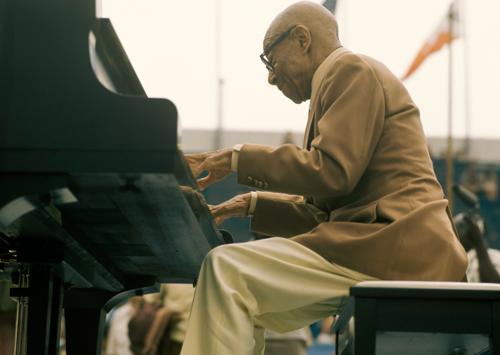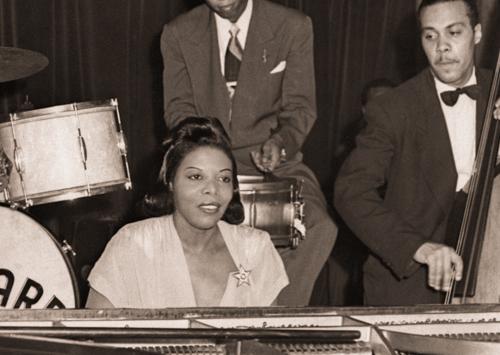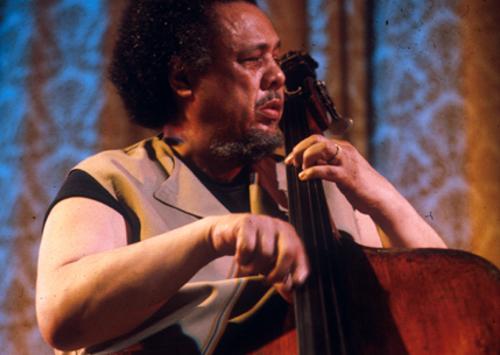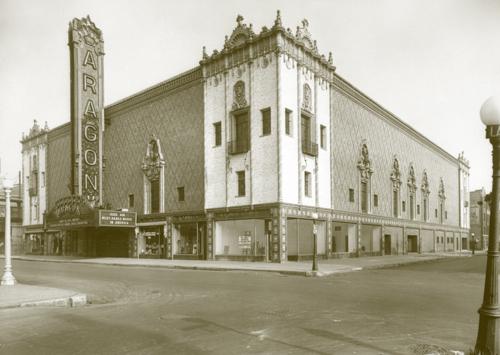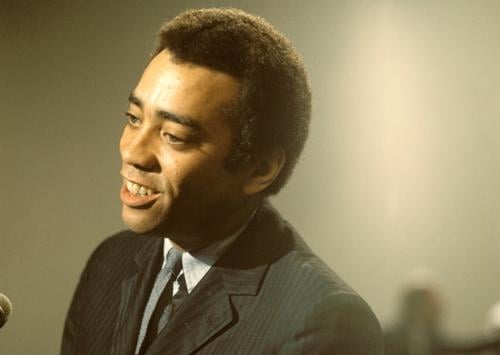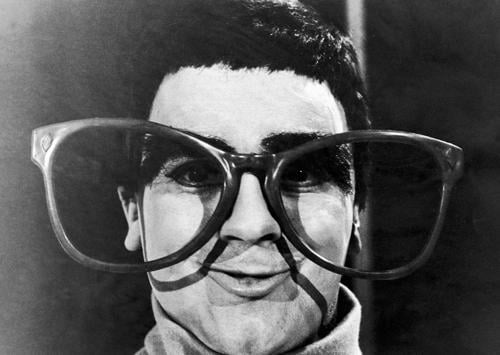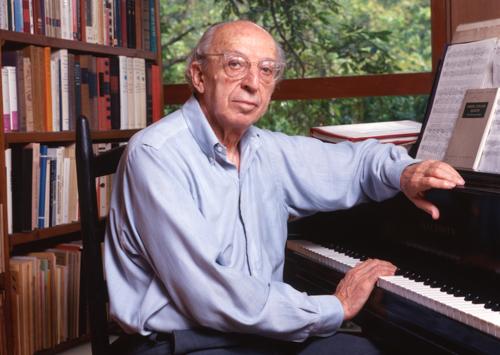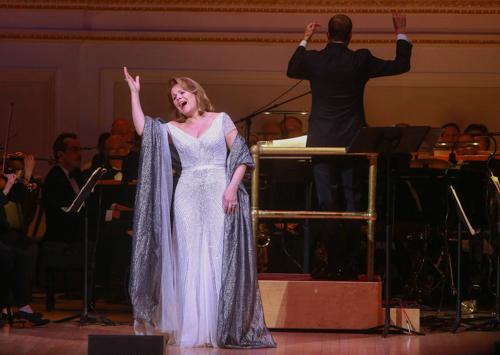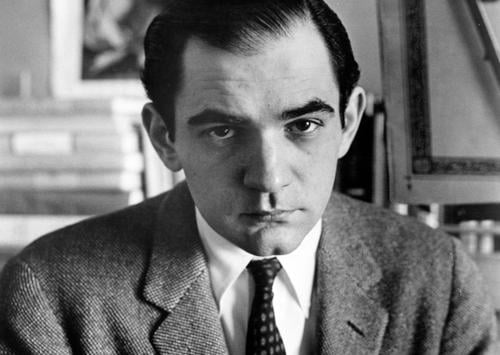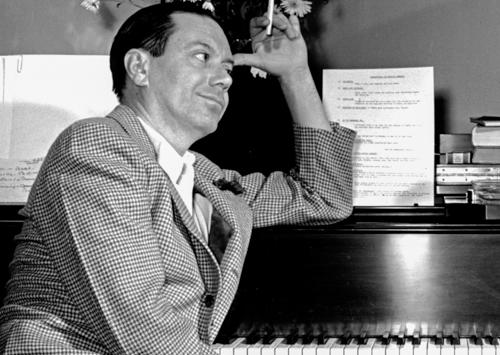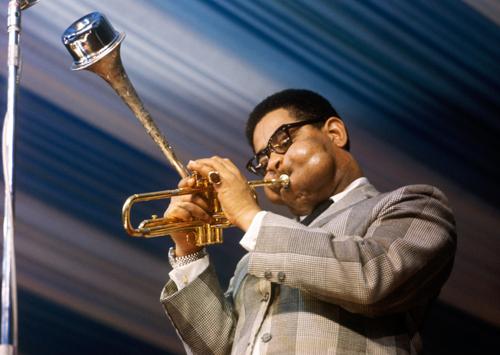The Studs Terkel archive of interviews with jazz artists is an astonishing collection!
Studs Terkel interviews the last surviving pioneer of ragtime and early jazz. The incomparable Eubie Blake. Eubie is joined by Bill Bolcom, and Bob Kimball - Authors of the book “Reminiscing” with Noble Sissle and Eubie Blake. Eubie talks about his beginnings in Baltimore, MD, while still living at home with his parents. He recalls how he learned to play and compose ragtime music and when he first met his music partner Noble Sissle in 1915 “Baltimore. Of May 1915. And uh he came in from Indianapolis. A fellow named Frank Brown uh tarnishing a very good handsome guy but his wife was very jealous of him and wouldn't let him come, so they sent Sissle, and Jo Porter was going to work at the Riverview Park. Pardon me, and Joe Porter gave everybody, as far as six in the band, and he introduced everybody to to me but uh Sissle to everybody but me. Didn't you didn't invite me? So after a while, he said wait a minute he said uh uh I haven't introduced Eubie to Noble Sissle. And then when he gave me the induction I said Sissle, Sissle that name rings a bell to me. I said you write lyrics. He says yes. I say I saw your name on a song. I'm looking for a lyricist. And he says all right. And we shook hands.”
He worked for the highly celebrated black early jazz bandleader James Reese Europe and traveled with Europe's orchestra to England in the 1910s “music ; it was the turn of the century music but also a new development occurring, aspect of syncopation. A new form coming in, the richness of one aspect of jazz. So we've got to come to James Reese Europe and his travels to Europe. Who was James playing the music of Sissle and Blake, who is James Reese Europe? Who. Who was Jim Europe? Lot of people don't know who Jim Europe was. He studied at Howard University then he went to NYU, no-what’s that other college in New York. Columbia, Columbia, Columbia and he studied there. But all Jim would do it when we would be playing the big hous- hotels he’d come out ‘Alright men’ he’s a great big fella you know ‘Alright men. Alright. Bam! And hand the stick to me’ and then he'd go down on the floor with the millionaires and talk to the millionaires. He’d never did anything after he got his name, he didn’t, I did all the work.”
Eubie, Kimball, and Bolcom discuss Eubie and Sissle's 1921 Broadway hit show Shuffle Along “Well there's a story behind that one too. You see Shuffle Along was launched with used costumes. What had happened is that the producers, the courts had had a couple of flops just before then and all of a sudden you know they wanted to put on the show and nobody had any money it was all done in a shoestring thing. They built a temporary stage in this what used to be a kind of like a recital hall. Everything was really done completely on the on the take. You know and all of a sudden they found with themselves with all these bandana type handkerchief kind of costumes you know and so they had to write a number for it. And that's how ‘Bandana Days’ got written over the phone, wrote the show to the costume. Yeah. Yeah. Over the phone you wrote it didn't you Eubie. You were in Boston and I was in New York”.
Shuffle Along helped launch the careers of many previously unknown performers such as Josephine Baker, Paul Robeson, Florence Mills, Adelaide Hall, and Fredi Washington among others “One of the chorus girls was Josephine Baker. Jo Baker. And one of the young members of a quartet was Paul Robeson. Oh yeah. Paul uh somebody died in Hann's family. And he went to Kansas see, and uh I had a little argument with Browning about this but I, Roland Hayes struck Payne and a couple other fellas I can't remember the name. And I said to Paul I said ‘Listen uh uh Hann he's gone to Kansas City will you go down?’ He says I've never been on a stage. I said ‘Listen you all you got; I said you don't have to do anything but sing with the Quartet and the Four Harmony Kings. They came out of Rutgers.’
Eubie discusses his hit song I'm Just Wild About Harry. This song was later used by Harry S. Truman as his campaign song for the United States presidential election of 1948 “One of the most celebrated of Eubie Blake’s pieces. Harry? Yeah. Yes, I wrote that years ago but it was a waltz and Miss Gee. You know we sent for Miss G. Lotti Gee the big one of the stars of “Shuffle Along,” who just passed, while I was in Los Angeles and I played this waltz for her. So she says I liked the tune, but I can't sing it. Well, I knew that her range, you see, she had a D above the staff and I never took her no further than a B flat. See, cause Will Marion Cook taught me that not to take people at the last note. So anyhow I said ‘Well why can’t you sing? She says ‘because it's a waltz song. Whoever heard of a waltz song in a colored show?’ I said ‘I did.’ and she said ‘what show? I said ‘Wills and Walkers.’ Williams and Walker.
The inimitable Mary Lou Williams along with her manager Father Peter O' Brian sit down for an interview with Studs Terkel. She talks about her life and how at the age of 3, “I began playing when I was at the age of three, this is true’ In Atlanta Pittsburgh? In Atlanta, Georgia, where I was born. Uh, sitting on my mother's lap. She used to practice organs and put me on her lap, and she said one day while she was pumping the organ, my little fingers beat her fingers to the keyboard, and I began playing, and it must have been pretty good because she dropped me and ran and got the neighbors to hear.”
She learned how to read and write music while working in the Andy Kirk Band “Well my development came out of the Andy Kirk Band. They taught me how to write music, how to read, and everything else before I'd play, and all the keys. I don't even know what key I was in and my help came for them- the band had great teachers you know and, and during that era. The way they taught jazz well most anybody would end up playing it well.
She shares that while she was living in Kansas City, she met jazz greats Bennie Moten, Count Basie, Charlie Parker, Lester Young, and Thelonious Monk “Kansas City Jazz when you were there, you were the most fertile you know jazz is history. Wasn't it? That period in Kansas City. Basie, there were Turner, Count Basie, and the Benny Moten Orchestra was there, and they had- I met Charlie Parker, Lester Young. That was about the greatest era of jazz and uh Thelonious Monk came through, and oh the town was just uh flooded with them.” Also, that “Well I helped put quite a few artists - I came up in an era where in that you help one another you know, and so they even of different eras when I found them and they had potentials I always help.”
Studs asks “I suppose one of the questions to ask yourself and composing and arranging that was that always part of your musical life too from the beginning?” Mary reminisces “Well yes, it became a part of the music. I used to write music in the car, and it was a woman that I met. She's from Chicago, Lovie Austin, the old-time blues singer. I saw her in the theater. Great pianist too, writing music with her legs crossed, a cigarette in her mouth playing with the left hand and writing music for the next act. And I must have been quite young when I saw this, and I and I said one day I'm gonna be able to do that. So on the one nighter’s, sometimes they would become monotonous to me, and I'd write some of the arrangements while I was playing with my left hand. Andy would yell at me, you know you said I'd be happy when you finish that arrangement so you can play for the people you know.”
Aside from Lovie's influence, Mary mentions several other pianists who had an impact on her music playing in her early career such as: “Several of them were Earl Hines, Fats Waller in the beginning, Jelly Roll Morton. James P. [Johnson], right.” Mary explains how jazz was born “Jazz was born out of suffering of the first early black slaves it has nothing to do with New Orleans or Africa. It was born in America through experiences, and the first of that era was the spirituals, the second era was Ragtime, third era Kansas City Swing, Bop and you see the blues on the outside of the trunk. That's what's lost in the music of today. The blues is a spiritual contents of the music and the music is healing to the soul.”
Father Peter O' Brian and Mary Lou Williams discuss Mary's current activities for the “Jazz Mobile” tours with Dr. Billy Taylor. “Mary' s done a lot of things with Billy in New York, the Jazz Mobile was a stage drawn by motor vehicle, and it goes to different sections of the city in New York where performers play outside everybody, and so the kids in the community in the neighborhood come dancing everybody does. I just played on it about a month ago,” that were geared towards educating the youth on the history of jazz music. Mary talks about meeting Father Peter O' Brian, “I met Father Peter O’Brian when he was going to school in California, and he called me says you better. I had stopped playing again. He says you better come out and do something about Janis okay. If you can come out with me because I'm very sensitive, you know and I can't do everything myself. And he is real jived and and he is he has learned quite a bit about the music. So we went in a little club in New York to do something about it, and we stayed there six months or close to a year and in no time as many as 30 clubs had opened up, in the beginning, there was only three, and that was weekend gigs. Everybody had gone crazy with the rock. And so when he came out with me, he's done a terrific job in bringing it back to where it was. There were other people out there. [unintelligible] is that the Jazz mobile and everything. But when they went on the street the people had completely forgotten the music, and I thought of the Jazz Mobile one day, and some of the kids say what it is that they're playing. And when I was sitting, sitting in the club kids would come in and they'd go home tell the parents saying we found a new music and a new pianist and then parents came and they said my God says that's Mary Lou Williams she's been around for years.”
She traveled with him to Europe in 1952 to organize a band. When she returned to the US in 1954, she worked as a philanthropist helping less fortunate people. Not long after this she returned to music and began composing choral works for church including Mary Lou's Mass, and Black Christ of The Andes.
A Studs Terkel Radio interview I find most fascinating is one he did with the amazing “Jabbo” Smith. Jabbo made an amazing series of jazz recordings in the late 1920s with such artists as James P. Johnson, Fats Waller, Willie “The Lion” Smith, and Duke Ellington. His style of trumpet was considered by many to be as technical and as modern as that of Louis Armstrong's. Jabbo reminisces about his earliest memories of learning how to play music. His father died when he was about four years old, leaving his mother to raise him alone. “Well, my f irst memories were in Savannah, Georgia. You know because I was about four years old when I came from Pembroke. And so I was-stayed there until I was six then my mother put me orphan home school and stayed and off and home school for ten years.” When Jabbo first arrived at the orphanage “Well you know when you first did that you’re called a yard boy because you don't have anything for you to do so you just out on the yard until they assign you did something you know. So already had about six bands, you know, so then they get ready to make up a new one. This Alonzo Mills, he taught everybody music. He just come out on the yard say you come here, you come here, you can get partner you know. So he just came out like that and take you into the room you know and explain to you what are they doing. Making a band. And that's Lenny on the blackboard commence writing down these rhythms and things you know and explain and music to you, what music is.”
Jabbo says he learned other brass instruments in addition to the cornet “Ah well see that's what I say they teach you all in the same room you know. So you learn how to play all the instruments just by listening to what he’s teaching everybody else, might as well be teaching you, you know because he goes through the same things, so you hear what- you know. So you know how to play, and we only had brass instruments at the time.” At age 14, he ran away from the orphanage and moved in with his sister who lived in Philadelphia. “Oh yeah . I came out and see because you know as I ran away you know when I came onto my sister’s in Philadelphia and uh well I worked with a fella called Bill Phillips at the Blue Kitten. And uh so Harry Marsh was up there last night that I came out. I guess I was on crutches then you know the guy you just had on that day. So I played, and Harry heard me, you know. So he told me to come with you about 14, and this is about 14 now. So uh tell me to come ask me whether I know it was. So you told me to come down to the Waltz Dream next day we had a matinee right down there, and they liked it, you know.”
He recalls working with bandleader Harry Marsh and performing with New Orleans' brass players Wilbur and Sidney de Paris where he heard them play a muted horn for the first time. Jabbo himself learned to use a mute from studying with Sidney - who he greatly admired “They used to play down on the other end on the weekends. You know in Sidney I thought it was a crazy day cause. I was a kid. Everything. And he had all these buckets and mutes and hats, and he's the king of all that you know.”
Jabbo speaks of coming to Chicago for the very first time, “I came here in 28. I was with the show “Keep Shufflin’” oh “Keep Shuffling.” So the show broke up here, I stayed here. Was “Keep Shufflin’ the successor to “Shuffle Along”- that’s right-that Eubie Blake? This is Miller and Lyle- and Sissle. Miller and Lyle. There were also comics too, weren’t they? Yeah, they were the greatest.” Jabbo made recordings of tunes from Keep Shufflin' with Fats Waller, Garvin Bushell, and James P. Johnson under the group name The Louisiana Sugar Babes. He shares why he left the jazz scene “Well, I worked at the flame for about six years. And this urban renewal thing came, and I guess we had some trouble with the tax people. So you close down. So and that was the only place in town really that you know it employed musicians every night you know. And so when that closed up that I know three nights a week couldn't. Yeah. That was less work. So I went and got a job with Avis.” He returned many years later to perform in the theatrical show entitled One Mo' Time. This show premiered at the Blackstone Hotel in Chicago.
The legendary vocalist, actress, dancer, and civil rights activist Lena Horne joins Studs Terkel for an interview at the Blackstone Hotel in Chicago. She reminisces about how many people she met in the past had a misconception of who she was as a person “I like some time to think back about some of these people because people come in after the show and they say to me we never knew you were like this ‘We never knew you were funny. We never knew you were a person actually.’ They mean what-what I think they discover is that I'm a distillation if you like of all the things that I have seen and all the things that I've known and the people.”
She was able to bridge the gap and capture the interest younger generations with her life and music during the civil rights movement of the 1960s. Her view on life changed after she witnessed the strides that young people were making towards social and political justice “Young white people together for the first time in my life in a common cause whether, never achieved it but they were so right with each other that I lost a lot of that anger that, that temper I used to feel because I saw that we hurt the same and we, we wanted the same things and and I felt from them such a great passion.”
Lena remembers that it was Paul Robeson who “gave me a sense of my own history. I have to explain that by saying that in my generation my grandmother and my grandparents didn't talk about the great migrations that they had made coming up from the south. They didn't talk about the things they had been through. Paul is the first one that told me about my grandmother and what a wonderful woman she was in fact she was very fiery, a social worker she would work with teenage unwed mothers and she helped them get a scholarship to Rutgers. And Paul gave me a sense of self that I had never known”
He told her that the Black people who really mattered “we're not the people who came to the Chez Paris or The Cotton Club because they weren't allowed in there for the, in the first place. He said those weren’t the people that matter the people that mattered were the people who cooked the food and waited on the tables and were Pullman porters on the trains and were the people who worked and the people in the street. And he was so right.”
Lena shares her personal feelings about performing on stage and how she draws from energies from her audiences “Because you know the audiences they're sending off little messages. I'm actually as a person inclined to be moody. Some days I'm very very low. And as soon as I hit the stage I feel this great burst of something that I've not felt all day. I get out there and I grab these messages they're sending different corners of the theater sending in little quotes slow things even though they don't say anything. I feel it and it's incredible because it gives me the power. I don't know it's thrilling.”
She talks about discrimination in Hollywood and at the Cotton Club “It was the generation that didn't show their emotions. I didn't show my emotions because Hollywood had me looking like Lana Turner in Brown. And at the Cotton Club we didn't have any emotions I was 16 years old just kicking my heels up and taking my paycheck home to my mother. And I many, many years was working in places that I never saw a rainbow collection of people. And if I miss-stepped - we wasted a lot of time being role models not that I wanted to be but we were. And also is not true at the Cotton Club the chorus tended to be very light. Oh of course. Listen I was one of the darkest ones up they were me and the girl that married Louis Armstrong. She was a wonderful girl named Lucille.”
She says it was her friends Hattie McDaniel, Dinah Washington, and Billie Holiday who took her under their wing and motivated her to always hold on to happiness even in the face of hardship “Well as a matter of fact, it turned out that Hattie McDaniel’s, who was so, well she was an academy award winner as Mamie in Gone with the Wind, she took me under her wing and told me not to be unhappy because, she said, she had to wear two hats. She said you see I am Mamie in these movies she said but with the money I make I raise my family, I send my children to college, and I wear the hat that they want. But when I come home I take my hat off and she had the most exquisite house you ever saw in your life. Everything about her was delicate and fragile and she taught me right then and there. And Billie Holiday taught me the same lesson, I loved her very much. And Dinah Washington taught me the same [lesson].”
Lena shares her feelings for the new age of show business that was made by popular by artists such as: Aretha Franklin, and Chaka Khan “I can hear everything Chaka Khan says, I can hear everything Aretha Franklin says. Aretha is my, I adore her. Her father was a preacher? Yes. And so she has been raised in the standard of words. Words is what I love and she makes me, she makes me happy even though I am sad. When she sings ‘Amazing Grace’ for instance, I’ve heard it sung by many people, but I smile even when I’m crying in it because she’s free, her voice is free. And all the years that I held inside me so tight, I prayed to be free like she is.” She closes with words of wisdom learned from her father about logic “Logic! And logic, in a way, is about whether you have something to eat one day. Whether you have one friend, whether you can read a passage in a book and laugh. Logic is a wonderful thing. Logic makes the whole thing real so you don’t blow your cap, you know. You don’t get a gun and kill yourself. It’s logical that we have to go through certain things. Its logical that we-everybody ain’t going to love us. It’s logical that we don’t lose the best friends we have. It’s logical that human beings are crazy and not really as much as we-we are not as worth as we think we’re worth. But as long as we can just deal with that, we laugh.”


